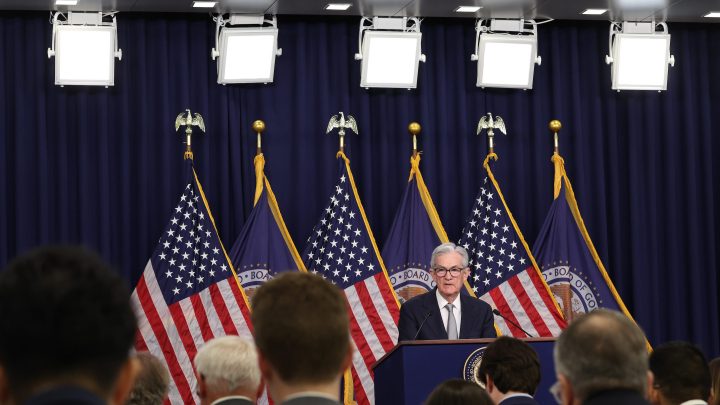
What does Jerome Powell mean when he calls the economy “resilient?”
What does Jerome Powell mean when he calls the economy “resilient?”

Everyone’s been dissecting Federal Reserve Chair Jerome Powell’s words at the press conference yesterday, following on the Federal Open Market Committee’s meeting.
A key takeaway for markets — which rallied today — is that the pause in interest rate hikes for two consecutive meetings and Powell’s comments may indicate the Fed is done, or close to done, raising rates to deal with high inflation.
Powell said this in his prepared statement yesterday:
“We are attentive to recent data showing the resilience of economic growth and demand for labor. Evidence of growth persistently above potential, or that tightness in the labor market is no longer easing, could put further progress on inflation at risk.”
So, is that resilience a good thing? Or, potentially, a risky thing going forward?
“It’s a good question—you know, it’s like, ‘resilient’—how is this a bad thing?” said former Fed economist Claudia Sahm.
She said consumers have kept on spending in the face of soaring prices and interest rates, which should have slammed their pocketbooks. Instead, they’re driving economic growth.
“And this is where the good news can become bad news,” she said. “If consumers are still spending, well, businesses can keep raising prices. In the labor market, if there are all these job options, businesses are going to have to pay higher wages to get people back.”
Powell’s use of the word “resilient” caught the attention of economist Gary Hoover at Tulane University. He wondered if the Fed Chair really meant resistant.
“Resistant, as opposed to resilient. Resistant to our old models,” he said.
Namely, fighting inflation by making it more expensive to borrow and more expensive to hire workers.
Instead, he said, inflation is coming down, without an economic contraction.
“It is resilient, we have such a robust economy,” Hoover said. “Despite what’s happening with monetary policy, we’re going to be able to get through this thing rather spectacularly.”
And here’s where the confusion with ‘resiliency’ lies. It’s ambiguous, said economist Robert Frick at Navy Federal Credit Union.
“Resilience plays a dual role. If it was resilient when it was contributing to inflation, it was a bad thing,” he said. “Right now, I think it is an unambiguously good thing, in that a soft landing is likely, certainly in the next year.”
Now, Frick doesn’t expect Fed Chair Powell to say that outright.
“He always has to sound a note of caution,” he said. “That’s what Fed chairmen and chairwomen do.”
But we can all still get a little excited to be living in a ‘resilient’ economy.
There’s a lot happening in the world. Through it all, Marketplace is here for you.
You rely on Marketplace to break down the world’s events and tell you how it affects you in a fact-based, approachable way. We rely on your financial support to keep making that possible.
Your donation today powers the independent journalism that you rely on. For just $5/month, you can help sustain Marketplace so we can keep reporting on the things that matter to you.

















